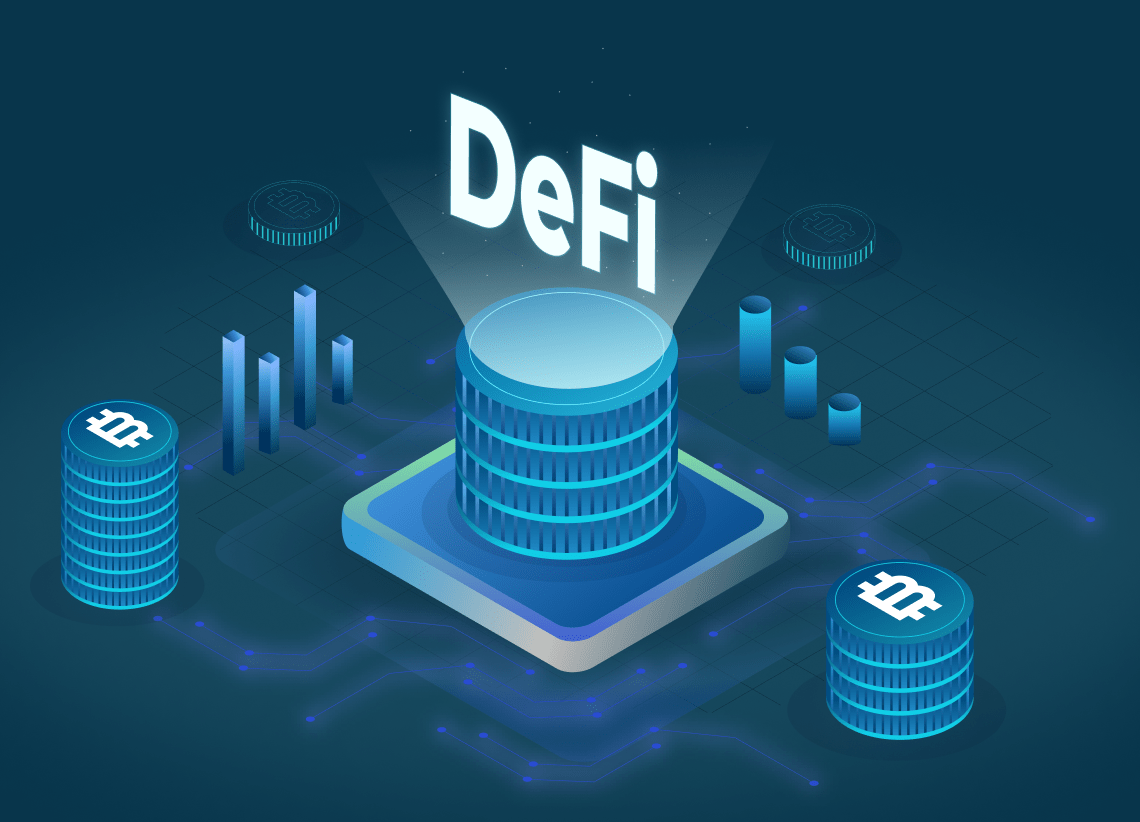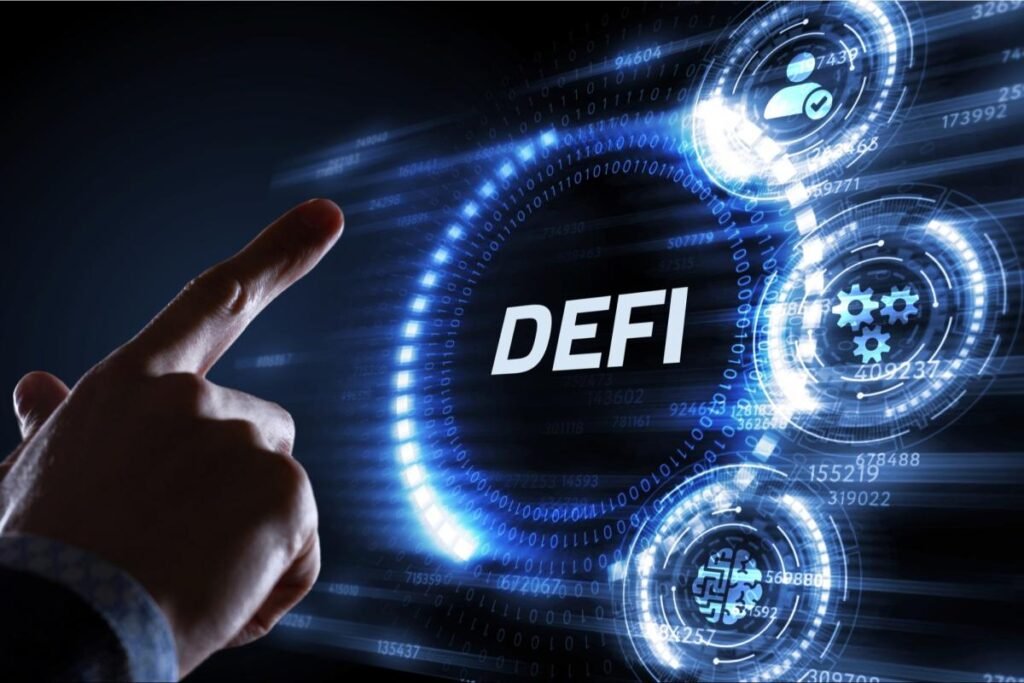The decentralized finance (DeFi) ecosystem has revolutionized traditional financial services, creating a $100 billion market that continues to expand rapidly. However, with this growth comes unprecedented security challenges that demand professional oversight. DeFi protocol audit services have emerged as the cornerstone of blockchain security, providing essential protection against vulnerabilities that could result in catastrophic financial losses.
Smart contracts powering DeFi protocols manage billions of dollars in digital assets, making them attractive targets for malicious actors. Recent security breaches have highlighted the critical importance of thorough auditing processes. Professional DeFi protocol audit services offer comprehensive security assessments that identify potential vulnerabilities before they can be exploited, ensuring your protocol launches with confidence and maintains user trust throughout its lifecycle.
Understanding DeFi Protocol Security Challenges
The Complex Nature of Smart Contract Vulnerabilities
DeFi protocols face unique security challenges that traditional financial systems rarely encounter. Smart contracts operate in an immutable environment where code errors can’t be easily corrected once deployed. This permanence makes pre-deployment security audits absolutely crucial for protocol success.
Common vulnerabilities include reentrancy attacks, integer overflow issues, access control problems, and flash loan exploits. These technical weaknesses can drain protocol funds within minutes, as demonstrated by numerous high-profile incidents across the DeFi landscape. Professional auditing services specialize in identifying these risks through systematic code review and testing methodologies.
Financial Impact of Security Breaches
The financial consequences of unaudited DeFi protocols can be devastating. Industry reports indicate that over $3 billion was lost to DeFi exploits in 2024 alone, with the majority of incidents occurring in protocols that skipped comprehensive security audits. These losses extend beyond immediate financial damage, destroying user confidence and protocol reputation.
Successful protocols understand that audit costs represent a fraction of potential losses from security breaches. Leading DeFi projects allocate significant resources to multiple audit rounds, recognizing that thorough security assessment is an investment in long-term protocol viability and user protection.
Comprehensive DeFi Protocol Audit Services
Code Review and Static Analysis
Professional DeFi protocol audit services begin with comprehensive code review processes that examine every line of smart contract code. Auditors use advanced static analysis tools combined with manual review techniques to identify potential vulnerabilities, logical errors, and compliance issues.
This process involves analyzing contract architecture, examining function interactions, and verifying that the code implementation matches the intended protocol behavior. Auditors pay special attention to critical functions like token transfers, yield calculations, and governance mechanisms that directly impact user funds.
Dynamic Testing and Simulation
Beyond static analysis, comprehensive auditing includes dynamic testing that simulates real-world usage scenarios. Auditors create test environments that replicate mainnet conditions, allowing them to observe protocol behavior under various stress conditions and attack scenarios.
This testing phase identifies runtime vulnerabilities that might not be apparent through code review alone. Auditors examine how protocols respond to edge cases, unusual transaction patterns, and potential economic attacks that could manipulate protocol incentives.
Economic Model Analysis
Modern DeFi protocol audit services extend beyond technical code review to include economic model analysis. Auditors evaluate tokenomics, incentive structures, and governance mechanisms to ensure they align with protocol objectives and resist manipulation.
This analysis examines potential economic attacks, including governance token manipulation, yield farming exploits, and liquidity provider risks. Auditors assess whether economic incentives could lead to unintended protocol behavior or create opportunities for malicious actors.
Types of DeFi Protocol Audit Services

Smart Contract Security Audits
Traditional smart contract audits focus on identifying technical vulnerabilities within protocol code. These audits examine contract logic, access controls, and potential attack vectors that could compromise protocol security. Auditors provide detailed reports highlighting discovered issues and recommended fixes.
Economic Security Audits
Economic security audits evaluate the financial mechanisms underlying DeFi protocols. These assessments examine tokenomics, pricing mechanisms, and incentive structures to identify potential economic attacks or unsustainable economic models.
Formal Verification Services
Formal verification represents the gold standard of smart contract auditing, using mathematical proofs to verify that contracts behave according to their specifications. This rigorous approach provides the highest level of security assurance but requires significant time and resources.
Ongoing Monitoring and Maintenance
Leading audit service providers offer continuous monitoring solutions that track protocol behavior after deployment. These services identify unusual activity patterns, monitor for new vulnerability disclosures, and provide ongoing security recommendations.
Selecting the Right DeFi Protocol Audit Services
Evaluating Auditor Credentials and Experience
Choosing appropriate DeFi protocol audit services requires careful evaluation of auditor credentials and experience. Look for teams with proven track records in blockchain security, relevant certifications, and experience auditing similar protocols.
Consider auditors who have worked with established DeFi projects and can provide references from previous clients. The most qualified auditors possess deep understanding of both technical smart contract development and DeFi economic models.
Also Read:DeFi Scams: How to Spot, Avoid, and Protect Yourself in 2024
Understanding Audit Methodologies
Different audit providers employ varying methodologies, from automated scanning tools to comprehensive manual review processes. The most effective DeFi protocol audit services combine multiple approaches, using automated tools for initial screening while relying on expert manual review for complex vulnerability assessment.
Evaluate potential auditors based on their methodology transparency, reporting quality, and willingness to explain their processes. The best auditors provide detailed explanations of their findings and work collaboratively with development teams to address identified issues.
Assessing Audit Scope and Timeline
Comprehensive DeFi protocol audits require sufficient time for thorough analysis. Be wary of audit services that promise unrealistically fast turnaround times, as proper security assessment cannot be rushed without compromising quality.
Discuss audit scope in detail, ensuring that all protocol components receive appropriate attention. This includes core smart contracts, governance mechanisms, upgrade processes, and integration points with external protocols.
The DeFi Protocol Audit Process
Pre-Audit Preparation
Successful audits begin with thorough preparation that includes comprehensive documentation review, test suite analysis, and initial protocol familiarization. Development teams should provide complete documentation, including architectural diagrams, economic model explanations, and detailed function specifications.
Auditors review existing test coverage and may request additional tests to verify protocol behavior under various conditions. This preparation phase ensures that auditors understand protocol intentions and can identify discrepancies between intended and actual behavior.
Audit Execution Phase
The core audit phase involves systematic code review, vulnerability assessment, and testing protocol behavior under various scenarios. Auditors document their findings in real-time, often maintaining communication with development teams to clarify implementation details.
During this phase, auditors may discover issues ranging from minor code style problems to critical security vulnerabilities. They prioritize findings based on potential impact and provide recommendations for addressing each identified issue.
Post-Audit Activities
After completing the initial audit, auditors typically provide a detailed report outlining all findings, recommended fixes, and overall security assessment. Development teams address identified issues and request re-auditing of modified code sections.
The post-audit phase often includes final verification that all critical issues have been resolved and that implemented fixes don’t introduce new vulnerabilities. This iterative process continues until auditors are satisfied with the protocol’s security posture.
Cost Considerations for DeFi Protocol Audit Services
Factors Affecting Audit Pricing
DeFi protocol audit services pricing varies significantly based on multiple factors, including code complexity, audit scope, timeline requirements, and auditor reputation. Simple protocols might cost $10,000-$30,000 to audit, while complex protocols with multiple components can exceed $100,000.
Factors influencing pricing include the number of smart contracts, code complexity, required audit depth, and timeline constraints. Rush audits typically cost significantly more than standard timeline audits, as they require additional auditor resources and may compromise thoroughness.
Budgeting for Comprehensive Security
While audit costs may seem substantial, they represent a fraction of potential losses from security breaches. Successful DeFi protocols typically allocate 5-10% of their development budget to security audits, recognizing that thorough security assessment is essential for long-term success.
Consider budgeting for multiple audit rounds, as protocols often require re-auditing after significant code changes or before major upgrades. Ongoing monitoring services may also provide valuable long-term security benefits that justify their additional costs.
Common Vulnerabilities Found in DeFi Protocols

Reentrancy Attacks
Reentrancy vulnerabilities remain among the most common issues discovered during DeFi protocol audits. These attacks occur when external calls allow malicious contracts to recursively call protocol functions before state changes are finalized, potentially draining protocol funds.
Modern auditing services pay special attention to reentrancy protection, examining all external calls and ensuring appropriate safeguards are implemented. This includes verifying that state changes occur before external calls and that proper access controls prevent unauthorized recursive calls.
Access Control Issues
Improper access control implementation can allow unauthorized users to execute privileged functions, potentially compromising protocol security. Auditors examine all access control mechanisms, verifying that only authorized addresses can execute administrative functions.
Common access control issues include missing permission checks, incorrect role assignments, and inadequate privilege separation. Professional auditors ensure that governance mechanisms properly restrict access to critical protocol functions.
Integer Overflow and Underflow
Although less common with modern Solidity versions, integer overflow and underflow vulnerabilities can still occur in complex DeFi protocols. These issues arise when arithmetic operations exceed variable limits, potentially causing unexpected behavior or fund losses.
Auditors examine all mathematical operations, ensuring appropriate overflow protection and validating that calculations produce expected results under all conditions. This includes testing edge cases and unusual input values that might trigger unexpected behavior.
Benefits of Professional DeFi Protocol Audit Services
Enhanced Security Posture
Professional auditing significantly improves protocol security by identifying vulnerabilities before deployment. This proactive approach prevents potential exploits that could result in fund losses and protocol failure.
Comprehensive audits examine all aspects of protocol security, from smart contract vulnerabilities to economic model flaws. This holistic approach ensures that protocols launch with robust security foundations that protect user funds and maintain operational integrity.
Increased User Confidence
Security audits provide independent verification of protocol safety, increasing user confidence and encouraging adoption. Users increasingly research audit reports before interacting with DeFi protocols, making professional audits essential for user acquisition.
Transparent audit processes and public reporting demonstrate protocol commitment to security and user protection. This transparency builds trust within the DeFi community and encourages long-term user engagement.
Regulatory Compliance
As DeFi regulation evolves, professional audits may become increasingly important for regulatory compliance. Audited protocols demonstrate due diligence and commitment to security best practices, potentially facilitating regulatory approval processes.
Comprehensive audit documentation provides evidence of security measures and risk management practices that may be required for regulatory submissions. This documentation becomes increasingly valuable as regulatory frameworks develop.
Future Trends in DeFi Protocol Auditing
Automated Auditing Tools
The development of sophisticated automated auditing tools continues to evolve, offering faster initial vulnerability detection and reducing audit costs. These tools complement manual review processes but cannot replace human expertise for complex vulnerability assessment.
Future auditing services will likely integrate advanced automated tools with expert manual review, providing more comprehensive coverage at reduced costs. Machine learning algorithms may identify new vulnerability patterns and improve detection accuracy over time.
Continuous Security Monitoring
Traditional one-time audits are evolving toward continuous security monitoring solutions that track protocol behavior after deployment. These services identify unusual activity patterns and provide ongoing security recommendations.
Real-time monitoring capabilities enable rapid response to emerging threats and help protocols maintain security posture as the DeFi landscape evolves. This proactive approach represents the future of DeFi security management.
Standardization and Certification
The DeFi industry is moving toward standardized auditing practices and certification programs that ensure consistent audit quality. These standards will help users evaluate audit credibility and compare security assessments across different protocols.
Standardized reporting formats and certification requirements will improve audit transparency and enable better risk assessment by users and institutional investors. This standardization supports broader DeFi adoption and institutional investment.
Conclusion
Professional DeFi protocol audit services represent an essential investment in protocol security and long-term success. As the DeFi ecosystem continues to mature, comprehensive security auditing becomes increasingly critical for protecting user funds and maintaining protocol integrity.
The cost of professional auditing pales in comparison to potential losses from security breaches, making comprehensive security assessment a wise investment for any serious DeFi project. By partnering with experienced audit providers, protocol developers can launch with confidence and build the trust necessary for sustainable growth.
FAQs
How long does a typical DeFi protocol audit take?
Most comprehensive DeFi protocol audits require 2-6 weeks to complete, depending on code complexity and audit scope. Simple protocols might be audited in 1-2 weeks, while complex protocols with multiple components can take 2-3 months for thorough assessment.
What is the average cost of DeFi protocol audit services?
DeFi protocol audit costs typically range from $15,000 to $100,000 or more, depending on protocol complexity, audit scope, and timeline requirements. Simple protocols cost less while complex multi-contract protocols require more extensive auditing resources.
How often should DeFi protocols undergo security audits?
DeFi protocols should undergo comprehensive audits before initial deployment and re-auditing after significant code changes or upgrades. Many protocols also implement continuous monitoring services to maintain ongoing security oversight.
What happens if vulnerabilities are found during an audit?
When auditors discover vulnerabilities, they provide detailed reports with recommended fixes and severity assessments. Development teams address these issues and request re-auditing of modified code sections to ensure problems are properly resolved.
Can audited protocols still experience security breaches?
While professional audits significantly reduce security risks, they cannot guarantee complete immunity from all attacks. New vulnerability types may emerge, and complex protocol interactions can create unforeseen risks despite thorough auditing.


